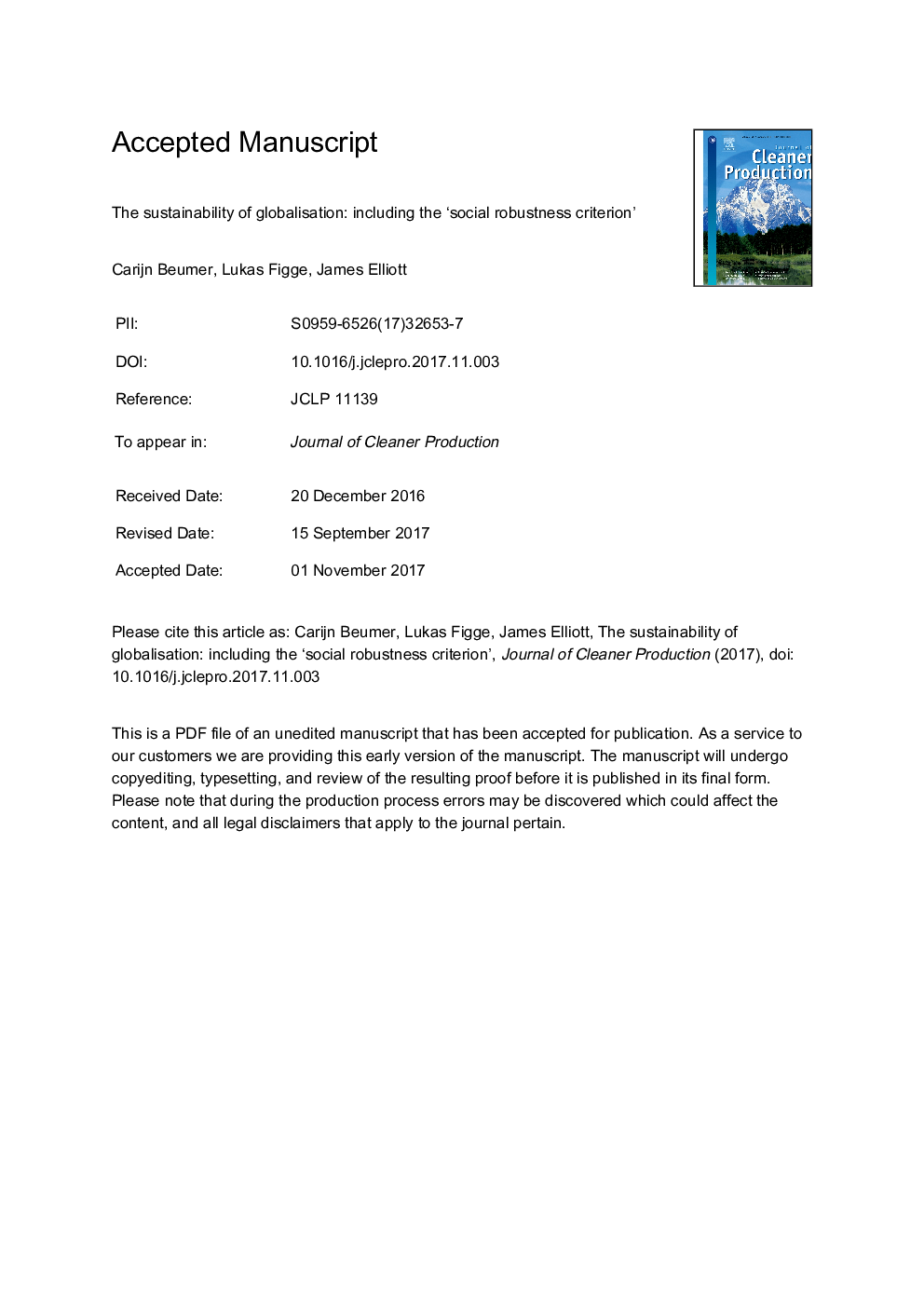| Article ID | Journal | Published Year | Pages | File Type |
|---|---|---|---|---|
| 8098304 | Journal of Cleaner Production | 2018 | 29 Pages |
Abstract
Many scholars, commentators and activists have been involved in often fierce debates about the normative desirability of economic globalisation. This issue remains highly contested to this day. Judgements as well as evidence on the positive and negative impacts of globalisation on the economy, society and ecology can be seen as statements on the sustainability of globalisation: is globalisation leading to a world in which people now and in the future can have a good quality of life? This paper explores the sustainability of globalisation by analysing its 'social robustness'. It argues that in order to be considered sustainable, a policy, trend or process should be acceptable to a broad range of people in society. A text and discourse analysis, based on Cultural Theory, demonstrates the overall dominance of the 'individualist' perspective across various organisations of global policy significance delineating sustainable futures within three core themes of global governance: climate change, the economy and health. This analysis contributes towards a more inclusive discussion on global issues that matter in the context of a sustainable future for all. A more socially robust form of globalisation is possible, but only if marginalized perspectives are included in the policy debates and thereby allowed to contribute to solving humanity's most pressing issues.
Related Topics
Physical Sciences and Engineering
Energy
Renewable Energy, Sustainability and the Environment
Authors
Carijn Beumer, Lukas Figge, James Elliott,
